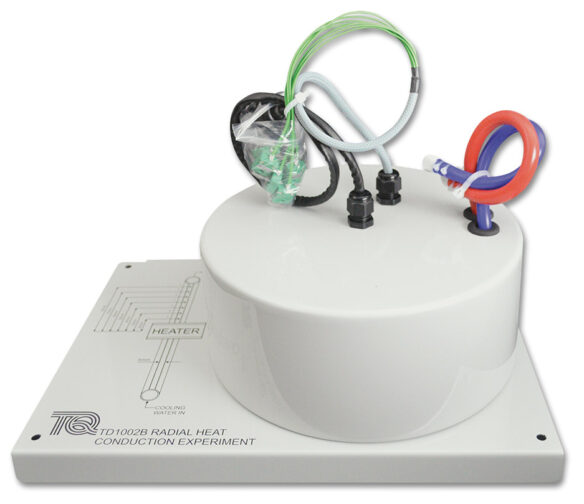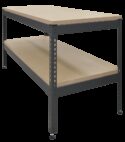Experiment
TD1002B

RADIAL HEAT CONDUCTION EXPERIMENT
An experimental module to introduce students to the principles of radial heat conduction, and to allow the conductivity of the test disk to be measured.
If you have any questions or you'd like to discuss a product, please call us.
+44 1159 722 611RADIAL HEAT CONDUCTION EXPERIMENT
This experiment has a solid brass disc with an electric heater (heat source) at its centre and a circular crosssection cooling tube (heat sink) around its circumference. It mounts on a base plate with a clear schematic of the experiment layout.
The electric heater and thermocouples connect to sockets on the Heat Transfer Experiments Base Unit, which also supplies the cold water feed and drain for the heat sink Students turn on the cooling water flow and adjust the heater power until the experiment reaches equilibrium. At equally spaced radii on the disc, seven thermocouples measure the temperature as the heat conducts radially outwards from the heater. Insulation around the disc reduces heat loss by convection and radiation, so that the results should match the theory for simple radial conduction only.
Learning outcomes
- Demonstration and calculations of radial heat conduction.
- Calculation of the thermal conductivity (k value).



